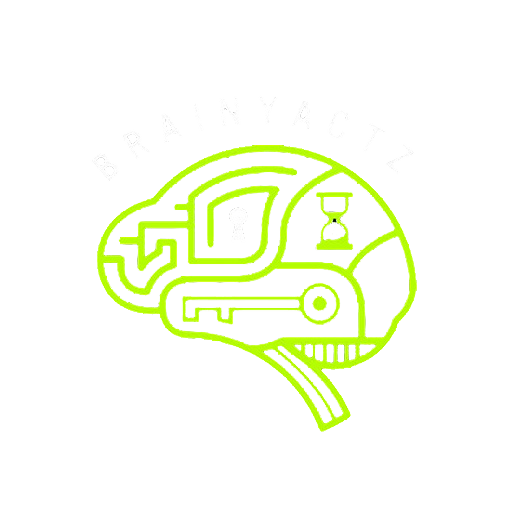The immersive challenge an escape room presents can lead to a transformation in team dynamics and overall performance. Continue reading to explore the powerful impact of escape room experiences on corporate team building.
Key Takeaways
- Escape Rooms Boost Team Communication and Problem-Solving
- Leadership Skills Emerge in Escape Room Challenges
- Regular Escape Experiences Improve Long-Term Teamwork
- Custom Escape Games Can Mirror Real-World Objectives
- Debriefs Solidify Learning and Enhance Real-world Application
Boosting Team Dynamics With Escape Room Challenges

Escape rooms offer a dynamic alternative to traditional team-building exercises, encouraging effective communication and problem-solving. They promote leadership and initiative while allowing each participant to showcase their strengths and contribute to personal growth within the organization.
Encouraging Communication Through Puzzles
In contrast to conference calls, escape rooms demand active communication and collaboration. Participants work together to decipher clues, fostering a sense of unity and enhancing their ability to think critically. This immersive environment promotes teamwork, making coworkers a unified and effective problem-solving unit.
Fostering Leadership and Initiative Taking
In the unique setting of an escape room, individuals frequently take lead roles, especially during high-stakes scenarios like a prison break or a mission to fix a space station. The urgency created by the countdown clock often brings out natural leaders who guide their teams to success. This environment offers a valuable chance for companies to witness the natural growth of leadership and team problem-solving skills.
Enhancing Problem-Solving Skills in a Group
Immerse yourself in the world of escape rooms, where history comes alive, and teams tackle ancient mysteries using wit and teamwork. Within these walls, digital distractions are left behind, setting the stage for a collective journey through time to solve puzzles and unlock secrets using nothing but ingenuity and collaboration.
Recognizing Individual Contributions to Team Success
Every small action contributes to the team’s progress in an escape room. This exercise allows different employees to blend their skills, showcasing individual strengths and highlighting that every role is important in problem-solving.
The Role of Escape Rooms in Corporate Team Development

In the captivating environment of an escape room, traditional office hierarchy disappears, giving way to teamwork in solving intricate puzzles under time pressure. This engaging setting promotes unique team building, as each participant brings individual strengths to achieve a common goal. It’s a space where everyone’s input is valued, fostering collaboration that benefits the workplace.
Breaking Down Hierarchical Barriers Among Team Members
In solving an escape room mystery with the assassination of Abraham Lincoln as a backdrop, employees at every level work together as a unified team, away from modern distractions and constraints of job titles. This setting emphasizes the importance of every individual’s contribution, creating a culture where all ideas are important and everyone’s voice can be heard equally.
Cultivating a Collaborative Spirit in Competitive Scenarios
In an escape room’s dynamic setting, the ticking clock enhances unity among virtual team members, transcending competition. Immersed in scenarios such as a murder mystery, participants move from isolated online interactions to vibrant, in-person discussions. This shift from solitude to team involvement strengthens organizational unity and underscores that genuine collaboration requires combining efforts to overcome challenges, not competing among each other.
Identifying and Leveraging Diverse Skill Sets
In escape rooms, participants use logic and technical savvy skills to solve puzzles, making them excellent for team building. They echo a Nancy Drew mystery, highlighting how crucial each person’s abilities are for success. These activities emphasize teamwork, deductive reasoning, and creativity, showcasing the value of diverse talents in achieving victory.
Strategic Planning and Escape Rooms: A Perfect Match

In escape rooms, office teams engage in puzzles that sharpen their strategic planning and problem-solving skills beyond the usual work setting. This experience, emphasizing quick decision-making under pressure and adapting strategies to changing scenarios, mirrors real-life business challenges and deadlines, ultimately enhancing their ability to tackle corporate tasks efficiently.
Mapping Out Problem-Solving Tactics in Real-Time
In the throes of an escape room’s adventure game, teams transcend the metaphorical prison of narrow thinking, mapping strategies synchronously with the heartbeat of productivity. Every decision weighed against the limits of their terms of service in the game, igniting innovation while the plot thickens, steering them through an ever-evolving web of an enigma. This hands-on approach equips teams with the agility to face real-world business scenarios with foresight and finesse.
Adapting Strategies Based on Team Feedback
Escape rooms offer a unique learning experience that contrasts the remote work environment. They enable team members to combine their knowledge and develop adaptable and responsive strategies through direct interaction, challenging the restrictions of remote work. This participatory approach revitalizes team dynamics, fostering collaborative growth and vibrant feedback loops.
Learning to Make Decisive Choices Under Pressure
Navigating an escape room is like sailing through a storm on Blackbeard’s ship. Each second is crucial, demanding rapid decision-making and trust in instincts. The experience simulates real-life pressure and sharpens the ability to make decisive choices under time constraints, which can be transferred to any business scenario.
Cultivating Creativity and Innovative Thinking

In escape rooms, teams face puzzles that challenge conventional thinking, pushing them into new creative areas. This setup encourages innovation as participants work together towards a common goal, fostering a corporate culture that appreciates creative problem-solving and teamwork.
Navigating Unfamiliar Scenarios to Stimulate Creativity
In the enigmatic world of escape rooms, teams face scenarios that challenge conventional logic, urging them to adopt new perspectives and devise inventive solutions. This journey into the unfamiliar ignites a spark of creativity, promoting innovative thinking that extends beyond the escape experience.
Encouraging Out-of-the-Box Thinking to Solve Complex Puzzles
Thrown into the thick of a mystery requiring a mental agility sprint, teams in escape rooms often encounter puzzles that defy straightforward thinking. This compels them to weave together disparate ideas, drawing on each other’s strengths to form innovative solutions. When faced with a complex problem, the wild cards, seemingly left-field suggestions, often point the way out of these intricate labyrinths.
Inspiring Innovation Through Shared Challenges
In escape rooms, teams are more than puzzle solvers—collaborators facing challenges that require ingenious teamwork. The adrenaline of overcoming the unexpected unites them, much like alchemists searching for gold, creating an environment where innovation is key to escape. This shared experience bonds the team ignites their creativity and empowers them to approach their daily corporate tasks with renewed perspective and boldness.
Measuring the Impact of Escape Rooms on Team Performance

Team-building activities like escape rooms significantly impact workplace dynamics, fostering better teamwork through suspense and strategy. Companies engaging in these exercises often experience improved collaboration, with notable advancements in communication, problem-solving, and team spirit. This contributes to healthier interactions among colleagues, a collaborative approach to challenges, and stronger camaraderie, revitalizing the work environment.
Analyzing Communication Efficiency Before and After Participation
Any corporate leader knows the vital role that communication plays in a team’s success. By observing teams before and after their escape room experiences, subtle shifts in dialogue patterns often emerge, revealing a newfound fluency in collaboration that speaks volumes. It’s not just the increased frequency of discussions that marks this change; it’s the depth and efficiency of these exchanges that illuminate how shared adversity can truly transform a group’s communicative aptitude.
Assessing Improvement in Collaborative Problem Solving
After an escape room experience, team collaboration and problem-solving skills markedly improved. Initially, team efforts may be disjointed, but post-experience, there’s a shift towards cohesive, efficient teamwork. Decisions are made swiftly and collectively, transforming individuals into tightly-knit teams with enhanced synergy and active participation. This highlights the significant, positive impact of escape rooms on team dynamics. roles blend seamlessly
Evaluating Changes in Team Morale and Engagement
After participating in an escape room, teams usually come back to the workplace with renewed morale and excitement. Observers notice a significant increase in team spirit as colleagues enjoy shared success. This experience leads to diminished barriers among team members, resulting in higher engagement and free-flowing ideas, thereby nurturing a more supportive work environment.
Integrating Escape Rooms Into Regular Team Building Initiatives

Corporate teams benefit from escape rooms by breaking the ice and building stronger bonds. Routinely planned escape room challenges enhance cooperation and communication, with customized scenarios targeting specific goals. Reflecting on these experiences afterward can boost workplace productivity and workflow.
Planning Periodic Escape Room Sessions for Continuous Improvement
Incorporating escape rooms into team building fosters continuous improvement in collaboration and communication. Regular challenges allow teams to refine their strategies, identify areas for development, and celebrate progress. By benchmarking performance and adjusting activities to target specific needs, this approach strengthens team dynamics and enhances overall synergy.
Tailoring Escape Room Themes to Match Team Objectives
Choosing appropriate escape room themes that match corporate goals can enhance team cohesion and strategy skills. Customized scenarios mimicking real-life challenges turn escape rooms into practice grounds for problem-solving and decision-making. By focusing on specific objectives, teams can apply the lessons learned to their daily work, making it an effective exercise for team building and skill development.
Leveraging Post-Game Debriefs for Team Growth Insights
Post-game debriefs following escape room challenges are crucial for reflecting on experiences and assessing team dynamics. They allow members to discuss how challenges were handled, improve stress communication, identify leadership, and acknowledge contributions. These debriefs help dissect game events and lay the groundwork for improved real-life teamwork, offering insights for daily tasks and promoting a smooth transition from game-based learning to real-world collaboration.
Conclusion
Escape rooms boost corporate team dynamics by promoting communication, problem-solving, and showcasing individual strengths. They break down office hierarchies, allowing everyone’s voice and ideas to contribute to success. By facing immersive challenges, teams bond and improve strategic planning, which is essential in business. Ultimately, escape rooms are a potent team-building tool, turning challenges into opportunities for enduring workplace collaboration and development.

